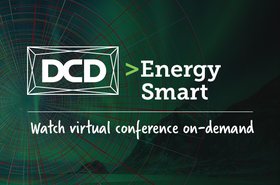As one of the most innovative and fastest growing cities in the world, Stockholm is at the forefront of the green energy movement. Rapid development of the city’s population and growing business presence has allowed Stockholm to position itself as a city that puts sustainability for both the environment and people at the forefront of its growth prospects.
Stockholm Data Parks (SDP) is a unique collaboration between Stockholm Exergi, City of Stockholm, Invest Stockholm, Ellevio and Stokab. The vision is to create data centers where no heat energy is wasted. The excess heat created by data centers across the world is often wasted, but SDP repurposes this valuable resource to help heat local communities and fight climate change. By 2040, Stockholm aims to be entirely fossil fuel free, and data centers will play a major role in this exciting transition.
SDP wants to help make Stockholm the hub for large data centers in Europe, and employ heat recovery effectively. By uniting innovative technology and expertly crafted infrastructure, SDP will further cement Stockholm’s circular economy, where efficiency and sustainability are at the forefront of the green energy era.
The gateway to a sustainable future: breakthroughs in heat recovery
There are a multitude of factors that come into play when deciding on the location of data centers. Where is it located? How much does energy supply cost? Does it have an appetite for these services? Sweden, and in particular Stockholm, is a converging intersection of the most ideal circumstances for data center infrastructure. With sustainable, low cost electricity generation, an opportunity to repurpose heat energy, a vibrant business environment and huge demand for digital services, Stockholm is the ideal location for data center infrastructure.
Rylander mentions there are three key enablers that make heat recovery a viable option: that the heat energy is both useable and deliverable to end users, that there is a demand for the energy by end users, and that the process is commercially viable for both utility suppliers and data center operators.
Heat recovery in particular is a key reason why SDP’s project is so timely. Many other heat recovery projects do not meet the minimum standards when considering successful heat recovery. The sheer amount of heat energy created by data centers needs to be redirected effectively, or it is wasted. For example, a 10MW data center load will generate the required heating to meet the needs for approximately 20,000 modern residential apartments. This means many data centers are just not situated in an area that is equipped to successfully reuse this energy.
The data center would need to be connected to a vast array of buildings that can reuse the heat energy at relatively low risk. Stockholm is perfectly positioned to utilize this excess heat due to a combination of heating system infrastructure and heat demand. Stockholm is able to accommodate heat recovery load from the equivalent of 150 data centers with a 10 MW load.
So what does this mean for SDP? At the end of 2019, in a matter of only a few weeks, three data center operators committed to building their next data centers in Stockholm Data Parks. These companies cited the opportunity to use heat waste as a key factor in improving their sustainability efforts. These data centers will supply heating to approximately 35,000 residential apartments which will help phase out fossil fuel based heating systems in Stockholm.
Unlocking the benefits of heat recovery
As the data center industry continues to face new challenges associated with energy supply and heat recovery, SDP partner Stockholm Exergi is helping unlock key benefits of green energy systems. Combined Heat and Power (CHP) systems with biofuels are used frequently in the city and Stockholm Exergi has multiple CHP systems, which supports critical facilities that produce heat and electricity for residencies across Stockholm.
In any CHP system, there is an important trade off between electricity and heat production. By using heat recovery from data centers, CHPs can essentially reduce heat production leaving more capacity for electricity. This has a doubly significant impact in that it helps provide heat for cities such as Stockholm, but also increases sustainable electricity production. Amazingly, if the data center is operating at 100 percent heat recovery, it indirectly contributes equal amounts of energy to the grid as it consumes.
Rylander has talked about how future changes to data center infrastructure such as liquid cooling typically raises base heat excess and temperatures. The increasingly viable opportunities for this heat excess to be used in new ways means that projects like SDP may become more commonplace. But this SDP is driven to not only improve infrastructure viability, but also to reduce reliance on fossil fuels.
Utilizing cutting edge technologies
In order to meet Stockholm’s 2040 goals, it is increasingly clear that a combination of innovative approaches to energy supply and management are required. Bio-energy combined with Carbon Capture and Storage (BECCS), has the capability to drastically reduce carbon emissions.
In late 2019, Stockholm launched an initial pilot project that aimed to capture CO2 from its heat production sources. Because the heat is bio-fuel based, the carbon capture process results in negative carbon emissions. BECCS thus has the capability to further reduce emissions in the atmosphere, while more traditional carbon capture methods will only maintain current levels of CO2.
BECCS could also be leveraged by other industries and businesses. This has the potential to create a wide variety of exciting opportunities of various business sectors that look to reduce their carbon footprint. A key question for Stockholm Exergi in the coming year will be to develop business models to engage with other sectors, like data center companies, to make BECCS a key ingredient of decarbonizing the economy.
To learn more about Stockholm Data Parks and their industry leading approach to heat recovery, make sure you join us for DCD>EnergySmart, the industry's most important free virtual conference on climate change.




